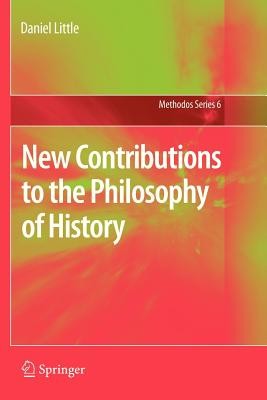
- We will send in 10–14 business days.
- Author: Daniel Little
- Publisher: Springer
- Year: 2012
- Pages: 240
- ISBN-10: 9400733097
- ISBN-13: 9789400733091
- Format: 15.6 x 23.4 x 1.3 cm, softcover
- Language: English
- SAVE -10% with code: EXTRA
Reviews
Description
Insights developed in the past two decades by philosophers of the social sciences can serve to enrich the challenging intellectual tasks of conceptualizing, investigating, and representing the human past. Likewise, intimate engagement with the writings of historians can deepen philosophers' understanding of the task of knowing the past. This volume brings these perspectives together and considers fundamental questions, such as: What is historical causation? What is a large historical structure? How can we best conceptualize "mentalities" and "identities"? What is involved in understanding the subjectivity of historical actors? What is involved in arriving at an economic history of a large region? How are actions and outcomes related? The arguments touch upon a wide range of historical topics -- the Chinese and French Revolutions, the extension of railroads in the nineteenth century, and the development of agriculture in medieval China.
EXTRA 10 % discount with code: EXTRA
The promotion ends in 18d.09:20:39
The discount code is valid when purchasing from 10 €. Discounts do not stack.
- Author: Daniel Little
- Publisher: Springer
- Year: 2012
- Pages: 240
- ISBN-10: 9400733097
- ISBN-13: 9789400733091
- Format: 15.6 x 23.4 x 1.3 cm, softcover
- Language: English English
Insights developed in the past two decades by philosophers of the social sciences can serve to enrich the challenging intellectual tasks of conceptualizing, investigating, and representing the human past. Likewise, intimate engagement with the writings of historians can deepen philosophers' understanding of the task of knowing the past. This volume brings these perspectives together and considers fundamental questions, such as: What is historical causation? What is a large historical structure? How can we best conceptualize "mentalities" and "identities"? What is involved in understanding the subjectivity of historical actors? What is involved in arriving at an economic history of a large region? How are actions and outcomes related? The arguments touch upon a wide range of historical topics -- the Chinese and French Revolutions, the extension of railroads in the nineteenth century, and the development of agriculture in medieval China.


Reviews